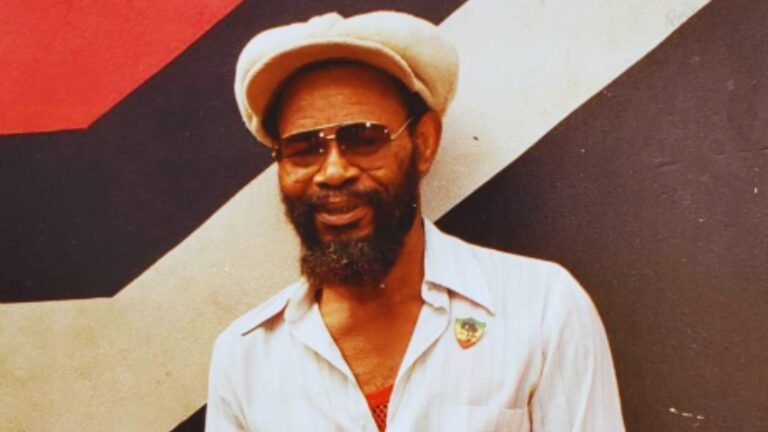Within the vibrant and ever-evolving story of Jamaican music, few figures have had as profound and enduring an affect as Gladstone “Gladdy” Anderson. Born on 18 June 1934 in Jones City, Kingston, Anderson was a musical architect, quietly shaping the inspiration of ska, rocksteady, and reggae throughout 5 a long time.
Early Beginnings in Jones City
Anderson’s journey into music started at dwelling, the place he realized piano below the steering of his uncle, famend bandleader and session organist Aubrey Adams. By Adams, younger Gladdy was launched to legendary producer Duke Reid, marking the start of an extended and fruitful profession in Jamaica’s bustling studio scene.
By the late Nineteen Fifties, Anderson had develop into an everyday fixture at Reid’s Treasure Isle studio, usually stepping in for Jackie Mittoo when the Skatalites recorded. His early session work additionally included stints with different notable producers comparable to Coxsone Dodd and Leslie Kong, inserting him on the centre of Jamaica’s musical revolution.
Shaping the Sound of Ska and Rocksteady
As a member of Lynn Taitt and the Jets, Anderson performed on quite a few key recordings that helped outline the ska sound. But it surely was in the course of the transition to rocksteady that he made considered one of his most vital contributions. Throughout a 1966 recording session for Hopeton Lewis’s Take It Easy, Anderson prompt slowing the rhythm to higher go well with the vocals. Upon playback, he famously described the brand new groove as “rock regular”—giving the rising style its title.
His fingerprints are throughout early rocksteady classics like Roy Shirley’s “Maintain Them” and Alton Ellis’s “Lady I’ve Bought a Date”, showcasing not simply his taking part in however his eager ear for association and musical nuance.
Studio Mainstay and Arranger Extraordinaire
All through the Nineteen Sixties and 70s, Anderson grew to become one of the vital in-demand session pianists on the island. He labored with nearly each main producer, together with Bunny Lee, Lee “Scratch” Perry, Clancy Eccles, and Rupie Edwards, usually below varied group names comparable to The Aggrovators, The Crystallites, or The Dynamites.
He additionally led his personal ensemble, Gladdy’s All Stars, which, when recording with Harry J, scored an enormous hit in 1969 with the instrumental “The Liquidator”—a observe that grew to become a staple at soccer grounds within the UK and was reissued to success once more in 1980.
As an arranger, Gladdy performed an often-overlooked however essential function in Jamaican music. Singers would convey naked lyrics to the studio, and Anderson would assist decide the important thing, construction, and melody—primarily shaping the completed product from the bottom up.
Solo Success and Vocal Work
Whereas most celebrated for his piano work, Anderson additionally loved success as a vocalist. Within the late Nineteen Sixties, he teamed up with Stranger Cole as Stranger and Gladdy, releasing tracks like Simply Like a River and Seeing is Understanding. His debut solo album, It Could Sound Foolish (1972), was a best-seller in Jamaica, adopted by Gladdy Limitless (1977) and Sings Songs for At the moment and Tomorrow (1982).
He continued to push musical boundaries with the Harry Mudie Meet King Tubby’s In Dub Convention collection within the late 70s and embraced the rising dub motion, releasing initiatives like Radical Dub Session and Peace Pipe Dub.
Roots Radics and Later Years
Within the Eighties, Anderson joined the Roots Radics, a band that will develop into central to the evolution of reggae into early dancehall. From Channel One Studios, he labored on numerous influential recordings with artists like Barrington Levy, Mighty Diamonds, and Horace Andy.
Even in his later years, Anderson remained energetic. He toured Japan in 1987, collaborating with dub band Mute Beat and recorded albums for the Overheat label, together with Caribbean Breeze, Piano in Concord, and Gladdy’s Double Rating. He was additionally featured within the documentary Ruffn Tuff: Founders of the Immortal Rhythm.
A Legacy of Timeless Music
Regardless of his immense contributions, Gladstone Anderson was by no means one to hunt the highlight. But his affect is simple. From the rise of ska to the beginning of rocksteady and the worldwide unfold of reggae, Gladdy was at all times there—shaping, arranging, and refining the sound of Jamaica.
His compositions have even crossed genres and generations. In 2009, rapper Jay Z sampled Anderson’s Mad Mad Ivy for the observe Already Home, a testomony to the timelessness of his music.
Anderson handed away on 3 December 2015 on the age of 81, after an extended sickness. Although gone, his music—and his mark on Jamaican tradition—endures. Whether or not by means of his delicate piano traces, his soulful vocals, or the numerous preparations that grew to become international hits.

